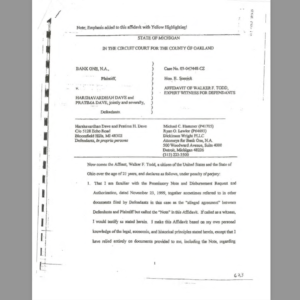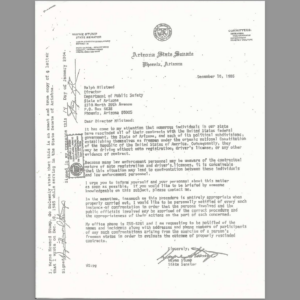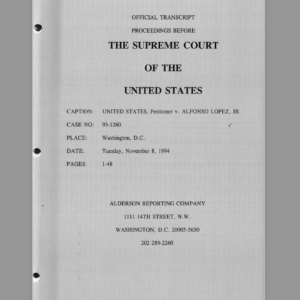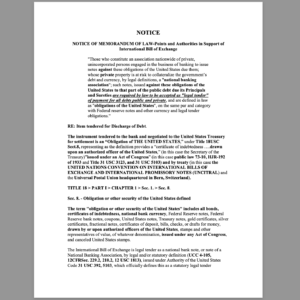Introduction
It is a matter of public record and established law that every State within the Union operates as a corporate entity. The so-called “State government” is not a sovereign body politic in the classical sense, but a creature of charter whose existence and powers derive from its Constitution—the functional equivalent of a corporate charter. Just as a corporation cannot act outside the four corners of its Articles of Incorporation, a State cannot act outside the framework of its Constitution.
Each State maintains a bicameral legislative structure—a House and a Senate—that functions identically to a corporate board of directors, promulgating statutes that serve as bylaws binding upon those who voluntarily associate with the corporate entity as “residents” or “citizens.” These statutes do not operate as natural law; they operate as commercial instruments within a corporate jurisdiction.
This fact is further evidenced by the following:
- States sue and are sued in their own names, own property, and issue bonds—functions that belong to corporate bodies.
- States register commercial identifiers, including D-U-N-S numbers and securities listings, further confirming their corporate capacity.
- Courts and legislatures within each State act as agents and officers of the corporate entity, bound by fiduciary duty to the charter (Constitution).
Accordingly, the “State” is not a sovereign master over the People; it is a corporate service provider, chartered to administer the public trust and execute the limited powers granted to it. To understand the State as a corporation is to expose the true nature of its authority, its limitations, and the commercial character of all interactions within its jurisdiction.
1. State Constitutions as Corporate Charters
Every U.S. state has a Constitution, which functions much like a corporate charter.
- A corporate charter is the founding document that gives an entity its powers, duties, and structure.
- Similarly, a state constitution sets out the framework for how the state is organized, who runs it, and how it interacts with the people.
- This means the constitution is the “organic law” that allows the state to exist and function just like a corporation is brought into being by its articles of incorporation.
2. State as a Corporate Entity
- Legally, each State can sue and be sued in its own name, own property, enter into contracts, and exercise certain delegated powers—exactly how corporations operate.
- States act through “agents” (governors, legislators, judges), just as a corporation acts through its “officers” and “directors.”
- Many States are literally registered as corporations with the Securities and Exchange Commission (SEC) and/or have D-U-N-S numbers (business identification numbers issued by Dun & Bradstreet).
3. House & Senate as Corporate Subdivisions
- Each state has a House of Representatives (or Assembly) and a Senate—these are the legislative branches.
- Functionally, these are like boards of directors within the corporation, writing statutes (bylaws) that govern how the corporate entity interacts with its “citizens” (who are treated as corporate franchises or subsidiaries through BIRTCH CERTIFICATES and State-issued documents).
- When they pass legislation, it operates just like a corporation adopting new bylaws or resolutions.
4. People as Sureties / Participants
- Individuals interact with the “State corporation” through licenses, registrations, and contracts (e.g., driver’s license, marriage license, tax filings).
- These agreements tie the ens legis (the all-caps corporate fiction name) to the corporate body of the state, making you a participant in its system.
- That’s why states treat infractions (traffic tickets, taxes, fees) not as crimes against flesh-and-blood people, but as violations of corporate statutes.
5. Evidence of Corporate Status
The corporate nature of every State is not speculative—it is judicially recognized and demonstrable. The U.S. Supreme Court has consistently acknowledged that States are corporate bodies. In Trustees of Dartmouth College v. Woodward, 17 U.S. (4 Wheat.) 518 (1819), the Court held that a corporate charter is a contract, enforceable under the Constitution. By direct analogy, a State Constitution functions as the founding charter of the State corporation, binding its officers and defining the scope of its powers.
Further evidence of corporate status includes:
- Bond Issuance & Debt Instruments: States issue bonds, borrow funds, and securitize debt in domestic and international markets—commercial acts that only corporate entities can lawfully perform.
- Fiduciary Oaths: State officials are required to swear oaths to uphold the Constitution of the State, just as corporate directors and officers swear to uphold articles of incorporation and their fiduciary duties to the entity.
- Legal Personality: States sue and are sued in their own name, own property, and enter contracts—functions available only to juridical persons (corporations).
This evidentiary record proves that the State exists and operates as a corporate body politic, chartered through its Constitution, while the people (the state) remain the source of all original and sovereign authority.
✅ Plain truth:
Every state operates as a corporate entity created by its constitution (the charter). The state legislature (house and senate) functions like the corporate board of directors, making bylaws (statutes) that apply to the “citizens” (franchise participants). You’re dealing with corporations disguised as governments.













